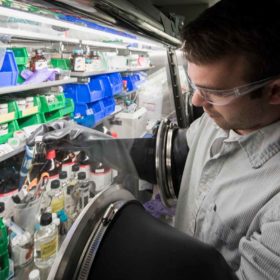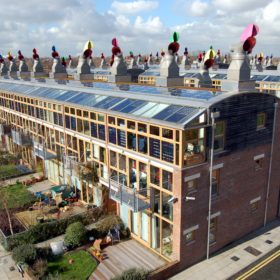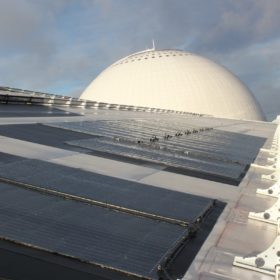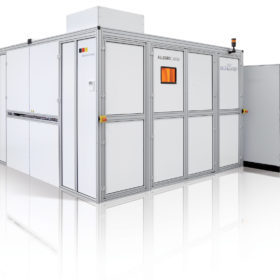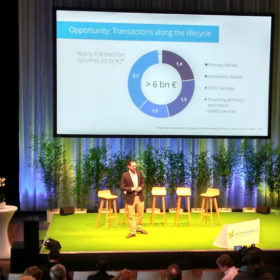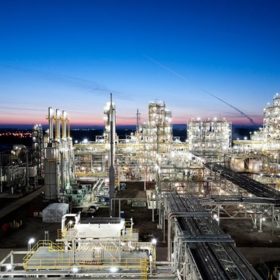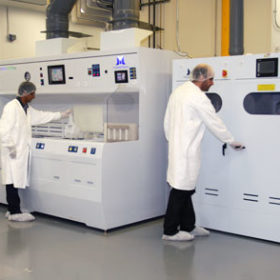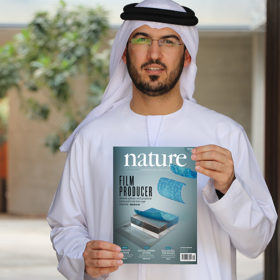ANU researchers develop light management technique inspired by butterfly wings
Researchers at Australia National University have developed a nanostructure technique to finely control the direction of light. The technique, says ANU, could be applied to tandem perovskite/silicon solar cells.
NREL develops controllable quantum dot systems
Researchers at the United States National Renewable Energy Laboratory (NREL) have developed a new designer quantum dot system, which allows for greater control over optoelectronic properties of the materials.
Solar Trade Association launches ‘Manifesto’ for UK solar
The UK trade body today launched its ‘Great British Solar Manifesto’, in a pre-election appeal to MPs outlining the contribution solar can make to the country over the next Parliament, if the right policy framework is put in place to fairly support market developments.
Midsummer sees profit increase for FY 2016
Financial results for 2016 posted by the Swedish thin film equipment supplier show that revenues almost doubled to SEK 60 million ($6.8 million) for the full year. Midsummer also saw a significant profit increase to SEK 10 million ($1.1 million).
LPKF sees 65% YoY revenue increase in Q1
German laser specialist LPKF has made a good start to 2017, with especially strong performance from its solar equipment segment, which saw a revenue increase by 71% compared with the same period for the previous year.
Ecosummit 2017: Eneco Group to invest in Next Kraftwerke
Dutch energy company Eneco Group announced its acquisition of a 34% stake in Next Kraftwerke, a German company operating one of Europe’s largest virtual power plant networks. The investment was announced at the Ecosummit cleantech event in Berlin today.
REC Silicon posts US$57.5 million revenue for first quarter 2017
Quarterly financial results from Norwegian based polysilicon producer REC Silicon show a drop in revenue from $80.4 million the previous quarter. EBITDA for the quarter was $4.6 million, also down from $4.9 million in the previous quarter.
Natcore achieves 20.7% efficiency on silver-free back contact cell
The latest efficiency milestone for Natcore’s Foil Cell is verified by the NanoPower Research Lab at Rochester Institute for Technology. The result was achieved on the Natcore Foil Cell, which utilizes a lasering process and novel metallization strategy, eliminating the need for costly silver.
Masdar & MIT develop method for high efficiency semiconductor materials
Researchers from the Abu Dhabi based Masdar Institute and the renowned Massachusetts Institute of Technology have jointly published the development of a fabrication method, which they say could make high efficiency semiconductor materials such as gallium-arsenide, indium phosphide and others more competitive with crystalline silicon.
Mercom Capital: $3.2 billion total corporate funding for solar raised in Q1
Information published by industry analysts Mercom Capital Group shows that a total of $3.2 billion was raised from 60 deals in the first quarter of 2016. This represents a major increase from the previous quarter, when $1.6 billion was raised in 45 deals.


